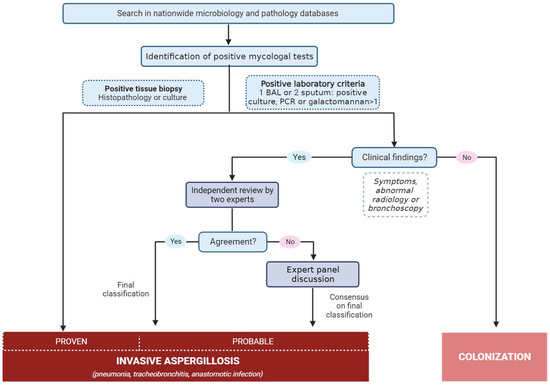Pathogenic Fungal Infections in Cancer and Transplant Patients
A topical collection in Journal of Fungi (ISSN 2309-608X). This collection belongs to the section "Fungal Pathogenesis and Disease Control".
Viewed by 1459Editors
Interests: fungal infections in cancer and SCT; CLABSI prevention and management; febrile neutropenia; procalcitonin and biomarkers of sepsis in cancer
Interests: fungal infection; hematopoietic stem cells; stem cell transplantation
Topical Collection Information
Dear Colleagues,
This Topical Collection, entitled "Pathogenic Fungal Infections in Cancer and Transplant Patients", aims to present recent research on any aspect of invasive fungal infections in immunocompromised cancer and stem cell and solid organ transplant patients. Patients with prior CAR-T cell intervention are also of interest. This field has seen major advances over the last 5 to 10 years, which will be highlighted in this Topical Collection. Some of the focal areas include, but are not limited to, the following:
- The changing epidemiology and risk factors of fungal infections in cancer and transplant patients.
- Pathogenesis of fungal infections in cancer and transplant patients.
- Immunology of fungal infections in cancer and transplant patients.
- Biofilm and pathogenic fungal infections in cancer and transplant patients.
- Advances in the diagnosis, prevention, management, and treatment of fungal infections in cancer and transplant patients.
Reviews, original research, and communications are welcome.
Prof. Dr. Issam I Raad
Dr. Marjorie Vieira Batista
Collection Editors
Manuscript Submission Information
Manuscripts should be submitted online at www.mdpi.com by registering and logging in to this website. Once you are registered, click here to go to the submission form. Manuscripts can be submitted until the deadline. All submissions that pass pre-check are peer-reviewed. Accepted papers will be published continuously in the journal (as soon as accepted) and will be listed together on the collection website. Research articles, review articles as well as short communications are invited. For planned papers, a title and short abstract (about 100 words) can be sent to the Editorial Office for announcement on this website.
Submitted manuscripts should not have been published previously, nor be under consideration for publication elsewhere (except conference proceedings papers). All manuscripts are thoroughly refereed through a single-blind peer-review process. A guide for authors and other relevant information for submission of manuscripts is available on the Instructions for Authors page. Journal of Fungi is an international peer-reviewed open access monthly journal published by MDPI.
Please visit the Instructions for Authors page before submitting a manuscript. The Article Processing Charge (APC) for publication in this open access journal is 2600 CHF (Swiss Francs). Submitted papers should be well formatted and use good English. Authors may use MDPI's English editing service prior to publication or during author revisions.
Keywords
- pathogenic fungal infections
- fungal infections in cancer
- fungal infections in stem cell transplant
- fungal infections in solid organ transplant








